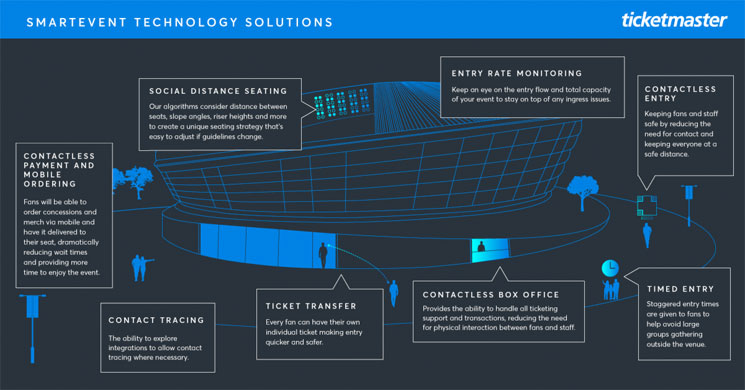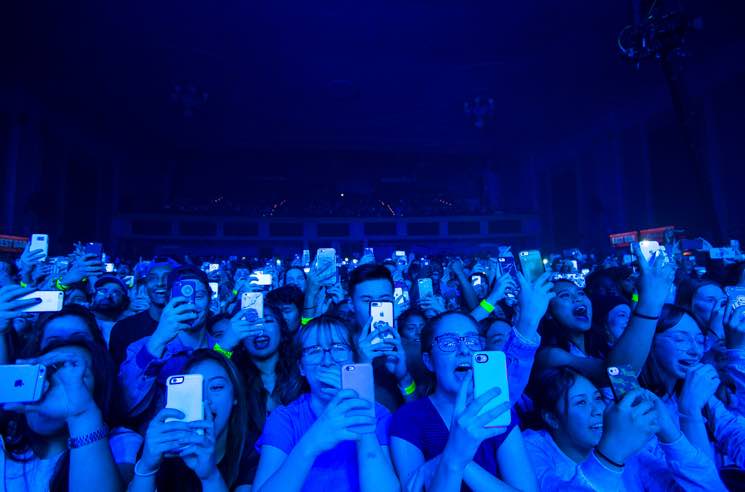Ticketmaster and Live Nation have announced a new pandemic-era ticketing tool called SmartEvent to help in the recovery of the live music industry in the coronavirus era.
Some of the new tool's features were already built into the Ticketmaster structure, while some are new — but almost all of SmartEvent's large gathering safety protocols are measures that are already required by most governments. Those features include contactless box offices, payment and entry, mobile ordering, contact tracing, timed entries, entry rate monitoring and ticket transferring.
Most importantly, the plan will introduce a distanced seating tool using "custom algorithms that consider venue size, distance between seats and many more data points to create unique seating strategies for each event."
"We know that fans around the world are eager to return to live events and SmartEvent gives event organizers an array of solutions to help make that possible," Ticketmaster president Mark Yovich said in a statement. "SmartEvent brings together our advanced technology platform and industry-leading venue and seating insights, putting Ticketmaster in the unique position to facilitate paths back to live."
Surprisingly, the plan does not include mandatory masks, COVID tests for attendees, temperature checks or any standards for venue ventilation.
While the science is still mixed on the topic, a recent study showed that several additional steps (not just the ones Ticketmaster plans to implement), will be required to assure a low likelihood of viral transmission. Even then, some researchers argued that the study was flawed since it was not peer reviewed or duplicated, as well as failed to examine the effects of aerosols spread through audience members talking.
Ticketmaster did note that it may have to adjust its plan on a case-by-case basis and "look different in markets around the world depending upon local conditions and regulations."

Some of the new tool's features were already built into the Ticketmaster structure, while some are new — but almost all of SmartEvent's large gathering safety protocols are measures that are already required by most governments. Those features include contactless box offices, payment and entry, mobile ordering, contact tracing, timed entries, entry rate monitoring and ticket transferring.
Most importantly, the plan will introduce a distanced seating tool using "custom algorithms that consider venue size, distance between seats and many more data points to create unique seating strategies for each event."
"We know that fans around the world are eager to return to live events and SmartEvent gives event organizers an array of solutions to help make that possible," Ticketmaster president Mark Yovich said in a statement. "SmartEvent brings together our advanced technology platform and industry-leading venue and seating insights, putting Ticketmaster in the unique position to facilitate paths back to live."
Surprisingly, the plan does not include mandatory masks, COVID tests for attendees, temperature checks or any standards for venue ventilation.
While the science is still mixed on the topic, a recent study showed that several additional steps (not just the ones Ticketmaster plans to implement), will be required to assure a low likelihood of viral transmission. Even then, some researchers argued that the study was flawed since it was not peer reviewed or duplicated, as well as failed to examine the effects of aerosols spread through audience members talking.
Ticketmaster did note that it may have to adjust its plan on a case-by-case basis and "look different in markets around the world depending upon local conditions and regulations."

